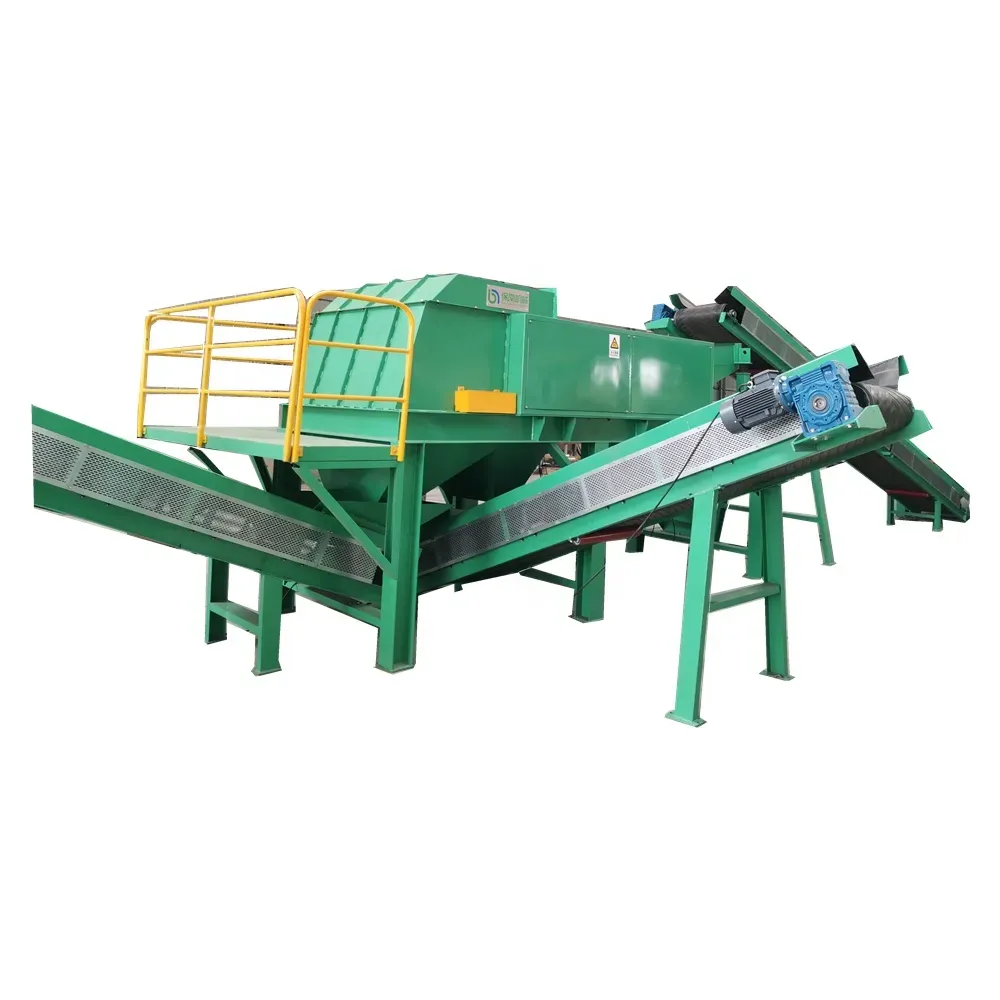

Ott . 19, 2024 14:51 Back to list
Industrial Steel Shredders Revolutionizing Metal Recycling
In the ever-evolving landscape of industrial waste management and recycling, industrial steel shredders have emerged as essential tools for optimizing the process of metal recycling. These powerful machines enable efficient processing of steel and other ferrous materials, significantly contributing to the sustainable management of resources. As industries increasingly prioritize environmental responsibility, the role of steel shredders has become paramount in transforming how we handle scrap metal.
Understanding Steel Shredders
Industrial steel shredders are specialized machines designed to reduce large steel objects into smaller, more manageable pieces. The shredding process involves powerful rotating blades that tear through tough metals, breaking them down into shreds that can then be easily transported for further processing or recycling. These machines come in various designs and sizes, catering to different types of operations, ranging from small scrap yards to large industrial facilities.
The primary function of these shredders is to handle a wide variety of ferrous materials, including old automobiles, appliances, construction debris, and more. By transforming bulky metal into smaller pieces, shredders facilitate more efficient transportation and processing. The shredded steel can then be melted down and repurposed into new products, closing the recycling loop and conserving valuable resources.
The Importance of Recycling Steel
Steel is one of the most recycled materials globally, with recycling contributing to a significant reduction in energy consumption and greenhouse gas emissions. According to various studies, recycling steel requires approximately 75% less energy than producing new steel from raw materials. This energy conservation translates into fewer emissions, making steel recycling an environmentally friendly process.
Industrial steel shredders play a crucial role in this recycling ecosystem. By enabling the efficient breakdown of steel waste, they enhance the recovery rate of recyclable materials and improve the overall economics of the recycling process. Additionally, the use of shredded steel in manufacturing new products not only reduces the need for virgin materials but also supports the circular economy, where waste is re-entered into the production cycle.

Advancements in Shredding Technology
The modern steel shredding industry is witnessing significant technological advancements that enhance the efficiency and effectiveness of shredders. Innovations such as automated control systems, advanced blade designs, and high-capacity shredding capabilities have transformed how scrap metal is processed. These features reduce downtime, increase throughput, and ensure a higher quality of shredded material.
Moreover, many industrial shredders are now equipped with integrated systems for sorting and separating different materials, further enhancing the recycling process. For instance, ferrous and non-ferrous metals can often be separated automatically, allowing recyclers to maximize the value of their materials. This technological integration also reduces the labor costs associated with manual sorting and enhances the overall efficiency of recycling operations.
Environmental and Economic Benefits
Investing in industrial steel shredders provides both environmental and economic benefits. From an environmental perspective, shredders significantly lessen the environmental impact of waste while promoting sustainable practices within the metal industry. By recycling steel, companies can reduce their carbon footprint and contribute to a greener planet.
Economically, the use of steel shredders can lead to increased profitability. Companies that invest in efficient shredding technology can streamline their operations, reduce material handling costs, and increase the value of the recovered materials. The burgeoning demand for recycled steel, spurred by both consumer preferences and regulatory incentives, further enhances the financial viability of steel recycling operations.
Conclusion
Industrial steel shredders are pivotal to the contemporary waste management landscape, playing an instrumental role in enhancing the recycling of ferrous materials. As industries continue to embrace sustainable practices, the importance of effective steel shredding technology will only grow. By optimizing the recycling process and maximizing resource recovery, these machines help foster a circular economy, ensuring that steel waste is transformed into valuable resources for the future. As we move towards a more sustainable industrial era, steel shredders will undoubtedly remain at the forefront of this transformation, driving both environmental benefits and economic opportunities.
Latest news
Troubleshooting Common Eddy Separator Problems
NewsJul.04,2025
The Role of Metal Recycling Plants in Circular Economy
NewsJul.04,2025
The Impact of Recycling Line Pickers on Waste Management Costs
NewsJul.04,2025
Safety Features Every Metal Shredder Should Have
NewsJul.04,2025
How Industrial Shredders Improve Waste Management Systems
NewsJul.04,2025
How Cable Granulators Contribute to Sustainable Recycling
NewsJul.04,2025